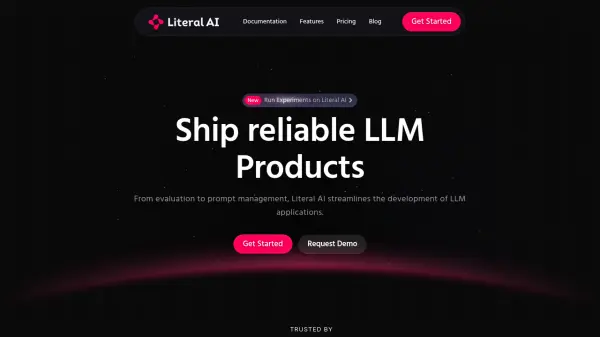What is Literal AI?
With Literal AI, teams can log LLM calls, agent runs, and conversations for effective debugging, monitoring, and dataset creation from real-world data. It facilitates prompt creation and debugging through a sophisticated playground, monitors applications in production to detect failures, manages datasets to prevent drifting, runs experiments efficiently, evaluates performance, manages prompt versions, and incorporates human review for continuous improvement.
Features
- Logs & Traces: Log LLM calls, agent runs, and conversations for debugging, monitoring, and dataset building.
- Playground: Create and debug prompts with templating, tool calling, structured output, and custom models.
- Monitoring: Detect failures in production by logging & evaluating LLM calls & agent runs, and track volume, cost, latency.
- Dataset Management: Manage data in one place and prevent data drifting by leveraging staging/prod logs.
- Experiments: Create experiments against datasets on Literal AI or from code to iterate efficiently while avoiding regressions.
- Evaluation: Score a generation, an agent run, or a conversation thread directly from code or on Literal AI.
- Prompt Management: Version, deploy, and A/B test prompts collaboratively.
- Human Review: Leverage user feedback and SME knowledge to annotate data and improve datasets over time.
Use Cases
- Developing production-grade LLM applications.
- Debugging and monitoring LLM calls and agent performance.
- Collaborating on prompt engineering and management across teams.
- Evaluating and improving the reliability of AI systems.
- Managing datasets for AI training and evaluation.
- Running A/B tests on different prompt versions.
- Tracking cost, latency, and usage volume of LLM applications.
Related Queries
Helpful for people in the following professions
Featured Tools
Join Our Newsletter
Stay updated with the latest AI tools, news, and offers by subscribing to our weekly newsletter.











